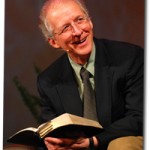
“But now, O Lord, you are our Father; we are the clay, and you are our potter; we are all the work of your hand.” – Isaiah 64:8
Beautiful Lord, Wonderful Savior
I know for sure, all of my days are held in Your hands
Crafted into Your perfect plan
You gently call me into Your presence guiding me by Your Holy Spirit
Teach me dear Lord to live all of my life through Your eyes
I’m captured by Your holy calling
Set me apart, I know you’re drawing me to Yourself
Lead me Lord I pray
Chorus:
Take me, Mold me, use me, fill me
I give my life to the Potter’s hand
Call me, guide me, lead me, walk beside me
I give my life to the Potter’s hand
You gently call me into Your presence guiding me by your Holy Spirit
Teach me dear Lord to live all of my life through Your eyes
I’m captured by Your holy calling
Set me apart, I know Your drawing me to Yourself
Lead me Lord I pray
Take me, Mold me, use me, fill me
I give my life to the Potter’s hand
Call me, guide me, lead me, walk beside me
I give my life to the Potter’s hand
“…take me, mold me, use me, fill me, I give my life to the Potter’s hand.”

 Dr. John Piper:
Dr. John Piper: Dyslexia warps reality: the consequences of which can be catastrophic. It is something that causes great hardship to multitudes in our day. People with normal or even above normal intelligence suffer from dyslexia as the brain oftentimes reverses numbers, letters or words. It is a huge learning handicap and in severe cases can greatly limit education and employment opportunities.
Dyslexia warps reality: the consequences of which can be catastrophic. It is something that causes great hardship to multitudes in our day. People with normal or even above normal intelligence suffer from dyslexia as the brain oftentimes reverses numbers, letters or words. It is a huge learning handicap and in severe cases can greatly limit education and employment opportunities.